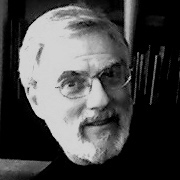
|
|
Research into psychotherapy with psychedelic drugs was in its infancy when federally supported research into such drugs was halted in 1965. Competing models of "psychedelic vs psycholytic" therapy were left with unfilled promise, and the dominant model of psychoanalysis at the time, ego psychology, had little to contribute to the discourse. Ironically, Hans Loewald's theory of Integration forms the basis for the contemporary understanding of Unitive States--the perspective which reopens potential legitimate psychotherapy research into these substances. We will structure the workshop toward an examination of those complex, open issues.
The presentation will begin with a brief summary of the material from the plenary session on current research into psilocybin-induced mystical states and Mario Beauregard's recent fMRI study of neural correlates of mystical experience in Carmelite nuns. Next, a recently made videotape of Toronto-based Professor of Religious Studies and psychoanalyst Dan Merkur will be the springboard for a new consideration of the potential therapeutic application of drug-enduced mystical states. Merkur's career has has been spent studying mystical and unitive states. Unitive thinking manifests consciously in mystical experiences and represents a healthy line of cognitive development:"unconscious unitive thinking has a natural and healthy tendency to manifest as conscious spirituality." Recently Merkur, a former professor of religious studies and author of 11 books tied to the psychology of spiritual states, has proposed a framework for working with people (while they are actively under the influence of a psychedelic drug)which theoretically could facilitate psychological mindedness and the rapid maturation of that line of personal growth. Finally, we will draw on the collective experience (wisdom) of the workshop attendees to consider how/whether contemporary psychotherapy research might inform the development of a proposed new psychotherapy study involving mystical experience-inducing psychedelic substances.
Thomas M. Brod, MD, DFAPA is a faculty member of the New Center for Psychoanalysis, Los Angeles, and Associate Clinical Professor of Psychiatry, UCLA. He has chaired the course on Neurofeedback at the American Psychiatric Association annual meetings for the past four years. In late 2005-early 2006 he organized and chaired two conferences for the Museum of Contemporary Art in Los Angeles tied to their exhibition entitited, "Ecstasy: In and About Altered States". In May 2007, he will chair a symposium on psilocybin research at this year's American Psychiatric Association annual meeting. Other Products by Thomas Brod 1) Mysteries of NF Success: What's Happening When "Nothing's Happening"?
To View Comments or Join the Conversation: |
Most Viewed of all Products
Interhemispheric EEG Training: Discussion and Demonstration
|

